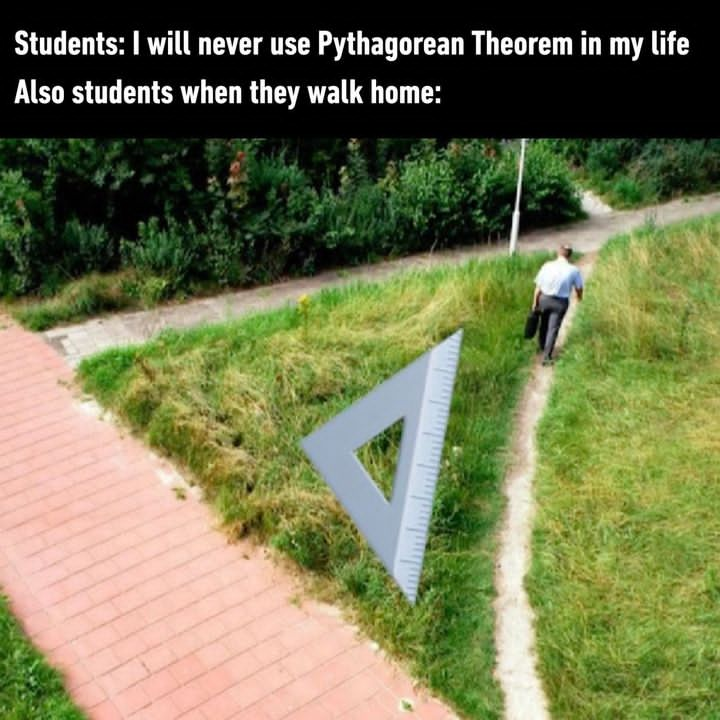this post was submitted on 23 Jan 2024
884 points (95.6% liked)
Memes
48316 readers
3435 users here now
Rules:
- Be civil and nice.
- Try not to excessively repost, as a rule of thumb, wait at least 2 months to do it if you have to.
founded 5 years ago
MODERATORS
you are viewing a single comment's thread
view the rest of the comments
view the rest of the comments

In the US it's common to give students "word problems" that describe a scenario and ask them to answer a question that requires applying whatever math they're studying at the time. Students hate them and criticize the problems for being unrealistic, but I think they really just hate word problems because because they find them difficult. To me that means they need more word problems so they can actually get used to thinking about how math relates to the real world.
I don't see it that way. Most "word problems" are just poorly posed, lack important information, or are ambiguous. Often, they are mostly fairly unrealistic.
It would be better to describe usage scenarios, talk about examples in class, and give exercises which have a clear, discernible pattern. Like, actual physics problems.
Part of what makes all the hatred for Common Core math so hilarious to me is that when I finally saw what they were teaching, it was a moment of "holy shit, this is exactly how I use and do math in real life." It's full of contextualizing with a focus on teaching mental shortcuts that allow you to quickly land on ballpark answers. I think it's absolutely wonderful.
But it's so foreign to the rote manner that a lot of parents were taught that many of them have a hard time grasping it, and get angry as a result.
Nah, the word problems suck because they're intended to teach you how to convert word problems into math problems. They did absolutely nothing to show how math is used in real world scenarios.
There are three problems I had with word problems in school. Not every problem applied to every word problem.
"This is way too vague."
"Why would someone buy 35 apples and 23 oranges?"
"Why would the person in the problem want to try to figure this problem out? It's completely unrelated to what they were doing."
I get the point was for us to be able to convert information given in a text format into something we can actually solve, but the word problems were usually situations you'd never realistically find yourself in in real life.
I think 2 and 3 are the same problem.
No, 2 is more "why are they buying this many", and 3 is more "why would this person want to figure out some random thing that popped into their head about this".
Okay, concerning 2 I thought you meant, why count and buy exactly this number. But it's actually realistic, for a big family, or for desserts for a party, etc.